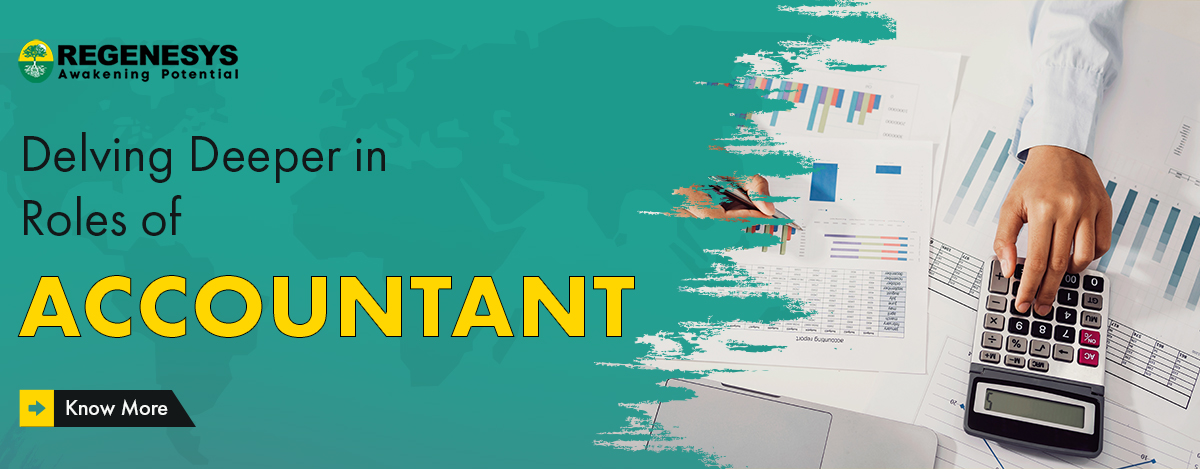In the intricate realm of finance, where numbers and logic converge to unveil an organisation’s fiscal well-being, accountants stand as sentinels of precision and transparency. Beyond the apparent duties of balancing books and preparing statements, there exists a profound domain known as accounting science. This article embarks on an expedition to unearth the layers beneath an accountant’s role, delving into the educational voyage through a Bachelor of Accounting Science (BCOMPT), the nuances of accounting science, and the diverse avenues it opens in the professional sphere.
Table of Contents
- The Academic Odyssey: Bachelor of Accounting Science(BCOMPT)
- Unraveling Accounting Science
- Guiding Light: Regenesys in the Realm of Accounting Science
- Expansive Horizons: Diverse Job Opportunities
- Elevated Understanding: Bachelor of Science in Accounting
- Conclusion
- FAQs: Addressing Common Queries
The Academic Odyssey: Bachelor of Accounting Science(BCOMPT)
The journey towards becoming a seasoned accountant often commences with a fundamental academic step: acquiring a Bachelor of Accounting Science (BCOMPT)degree. This educational pursuit equips aspiring accountants with the essential skills and knowledge to navigate the complex financial landscape. An institution that shines in offering specialised courses in accounting science is Regenesys. A meticulously designed curriculum exposes students to a comprehensive blend of theoretical concepts and practical applications, fostering a holistic understanding of accounting science.
Unraveling Accounting Science
Accounting science is not confined to mundane bookkeeping practices; it’s an amalgamation of theory and practicality that paints a more comprehensive picture of financial operations. It encompasses an in-depth comprehension of financial transactions, auditing principles, tax regulations, and management accounting. Unlike traditional bookkeeping, accounting science dives into the theoretical bedrock that propels financial actions and decisions. It’s akin to deciphering intricate patterns within the financial ecosystem through a magnifying glass, revealing hidden connections and insights.
Guiding Light: Regenesys in the Realm of Accounting Science
In the voyage of accounting science, institutions like Regenesys play an instrumental role in nurturing future accountants. With a curriculum designed to foster critical thinking and problem-solving prowess, Regenesys’ programs offer a panoramic view of the accounting landscape. The institution’s emphasis on practical application empowers students to bridge the gap between theory and real-world implementation. Through Regenesys’ official website (https://www.regenesys.net/), prospective accountants can explore tailor-made courses that provide insights into the multifaceted domains of accounting science.
Expansive Horizons: Diverse Job Opportunities
While traditional accounting roles remain steadfast, the spectrum of job opportunities for accounting science graduates is expanding with remarkable velocity. Beyond the world of routine bookkeeping, graduates can explore domains such as financial analysis, management consulting, internal auditing, and even forensic accounting. The profound knowledge gleaned from an accounting science program positions graduates as adept problem solvers, capable of untangling financial complexities and guiding organisations towards informed decisions. Whether within the public or private sector, the demand for individuals well-versed in accounting science is burgeoning.
An accountant’s role is both dynamic and pivotal within the realm of finance. These professionals are entrusted with a multifaceted array of responsibilities that encompass far more than traditional number-crunching. At the heart of their duties is the meticulous recording of financial transactions, ensuring accuracy and compliance with established standards. They prepare financial statements, balance sheets, and income statements that provide a snapshot of an organisation’s financial health. Beyond the numbers, accountants play a crucial role in financial analysis, interpreting data trends to offer insights that drive informed decision-making. Taxation is another integral facet; accountants are responsible for computing taxes, preparing tax returns, and ensuring adherence to tax regulations. Their expertise extends to auditing, where they meticulously review financial records to detect discrepancies, fraud, and potential risks. Accountants often contribute to budgeting and financial planning, collaborating with management to chart strategies that align with an organisation’s financial goals. An accountant is not merely a calculator-wielding professional but a strategic partner, a guardian of financial integrity, and an interpreter of economic narratives that guide businesses towards prosperity.
Elevated Understanding: Bachelor of Science in Accounting
Venturing deeper into the layers of accounting science, a Bachelor of Science in Accounting offers a specialised trajectory within the field. This program delves into advanced accounting theories, financial management strategies, and regulatory frameworks with unparalleled depth. The fusion of scientific methodologies with accounting principles equips graduates with a distinctive perspective, enabling them to dissect financial data with precision akin to scientific analysis.
Conclusion
In the grand tapestry of finance, accountants, armed with the knowledge of accounting science, assume the role of navigators, steering the course of financial actions within organisations. From the foundational Bachelor of Accounting Science degree to the intricate nuances of specialisation, this field reveals a world where theory and practice intertwine seamlessly. Institutions like Regenesys illuminate this path, cultivating aspiring accountants into torchbearers of financial wisdom. As the financial landscape evolves, so do the opportunities for those who dare to explore the hidden layers beneath the surface.
FAQs: Addressing Common Queries:
1. What exactly is accounting science, and how does it differ from traditional accounting practices?
Accounting science involves a deeper understanding of financial transactions, auditing principles, tax regulations, and management accounting, focusing on theoretical foundations rather than just bookkeeping. This distinction allows for a more comprehensive grasp of financial complexities.
2. What is the significance of pursuing a Bachelor of Accounting Science(BCOMPT) degree in today’s competitive job market?
A Bachelor of Accounting Science(BCOMPT) degree equips aspiring accountants with essential analytical skills and a broader knowledge base, it’s making them well-equipped to address modern financial challenges and secure a competitive edge in the job market.
3. How does Regenesys contribute to nurturing students in accounting science?
Regenesys offers specialised courses that combine theoretical understanding with practical application. Their curriculum fosters critical thinking and problem-solving skills, preparing students to bridge the gap between theory and real-world implementation.
4. Can you elaborate on the job opportunities beyond traditional accounting roles for graduates of accounting science programs?
Graduates with accounting science expertise can explore roles in financial analysis, management consulting, internal auditing, and forensic accounting. Their ability to decipher financial complexities positions them as valuable assets in guiding organisations towards well-informed decisions.
5. How does a Bachelor of Science in Accounting further enhance specialisation within the accounting science domain?
A Bachelor of Science in Accounting offers an in-depth exploration of advanced accounting theories, financial management strategies, and regulatory frameworks. This specialisation allows graduates to analyse financial data scientifically, catering to a niche yet vital aspect of the financial landscape.
6. What broader skills and qualities beyond number-crunching do accountants bring?
Accountants are not just numbers-oriented professionals; they contribute to financial analysis, taxation, auditing, and budgeting. They possess strong attention to detail, analytical thinking, communication skills, and the ability to translate complex financial data into actionable insights for decision-makers.








1 Comment
You have noted very interesting points! ps decent web site.Blog monetyze